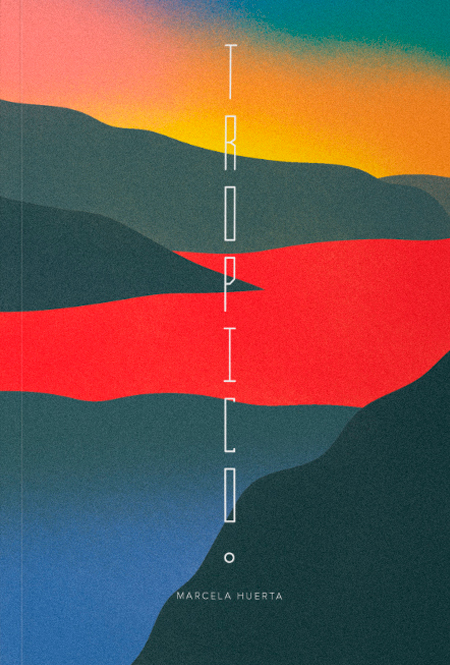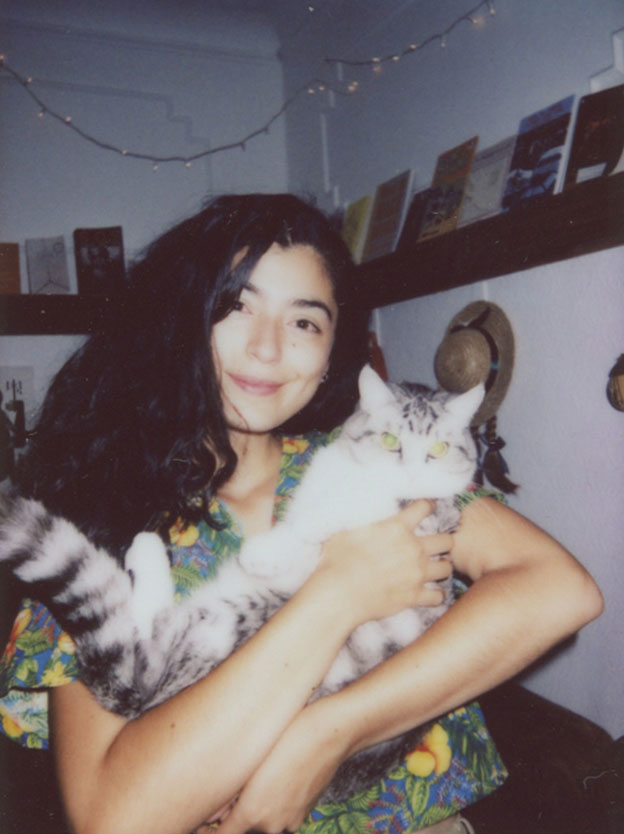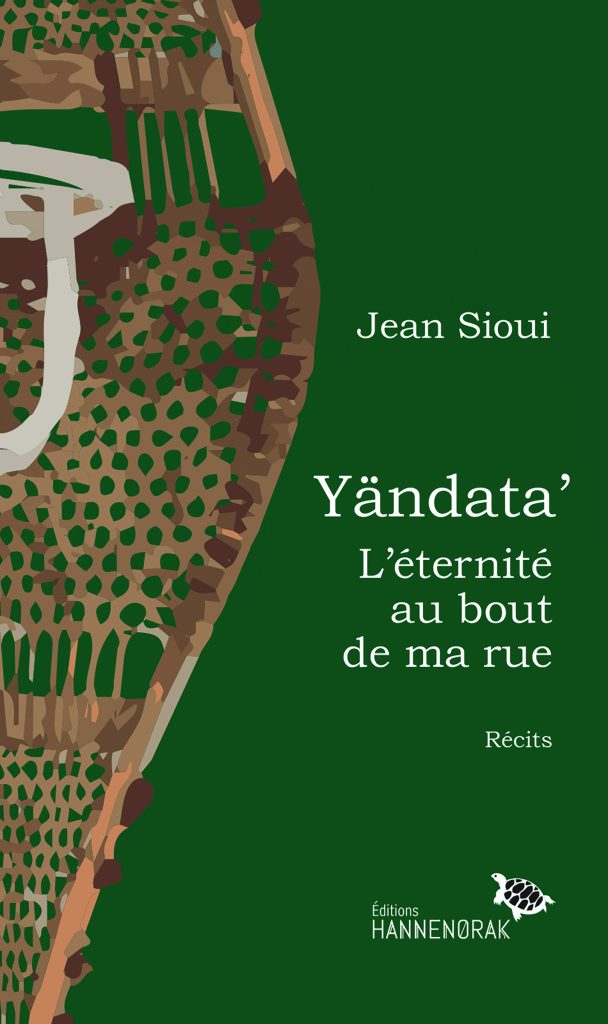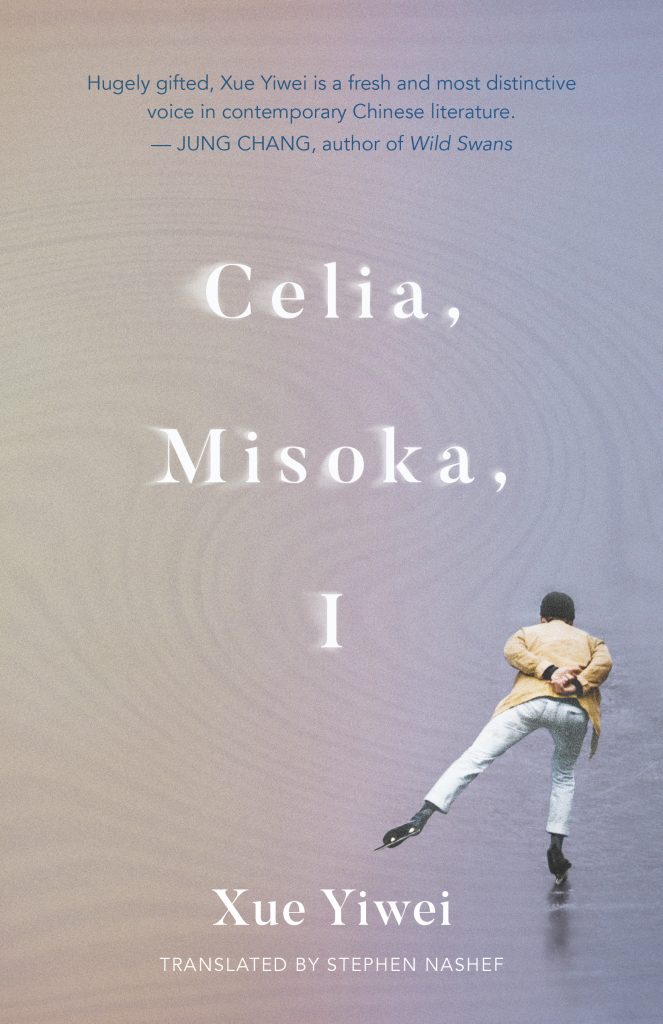Mots-clés

Publication
Extrait
THE REVOLUTIONARY WATCHTOWER
One day your wife doesn’t answer the door fast enough and you are feeling bored so you think you will answer it for her. Maybe she is in the bathroom or maybe she is in the back hanging the laundry. As you walk to the door you hear her running and she says, Chino, no, it’s the Jehovah’s Witnesses, don’t answer. What is that, you say, Jehovah’s Witness? They’re religious, only their manifesto is they don’t shut the fuck up. But your hand is already on the knob, they heard for sure, you tell your wife don’t worry, this is ridiculous, disrespectful, coming to me trying to waste my whole day, I’ll make sure they never come back again. Well good luck with that, she says, and leaves.
Hola hermano, my name is Antonia and I am in your neighborhood to discuss the Bible with you and your neighbours, after having spoken to your lovely wife Yolanda. With all the horrible events happening in the world today, many wonder if God really exists or cares what happens to the human race. What do you think about this?
Compañera, come in, come in, I’m so interested, I am, I am, I want you to tell me all about it, and when you have finished I would love to tell you all about what Communism can do for you.
Biographie
Marcela Huerta (she/they/he) is a second-generation Chilean-Canadian who was born in Victoria, British Columbia. She is a Communication Design graduate of Emily Carr University and worked for several years as a graphic designer. They were also the poetry editor for carte blanche magazine and an assistant editor for Drawn & Quarterly. Huerta’s debut book, Tropico, was published by Metatron in 2017 and won a prize from the Académie de la vie littéraire. In 2021, Tropico was translated into French by Daphné B. and published in French by Éditions Triptyque. Huerta’s poem “cenicientas (Cenicienta)” was the 2018 winner of CV2’s 2-Day Poem Contest. In 2023, Huerta won a mentorship through Forecast for their poetic project White Horses Always Run Home. They are the Community Director at KO_OP, a worker-owned video game company based in Tiohtià:ke (Montréal), and the winner of a Tribeca Award for the video game Goodbye Volcano High.

Résumé
Tropico is a collection of poems and creative non-fiction prose pieces. The book explores the complex aftermath of the 1973 coup in Chile alongside the grief of losing a parent. Huerta directly addresses their father in Tropico, trying to understand the details of his life before and after fleeing Chile. Huerta sorts through her parents’ lives and displacement, recounting her father’s memories alongside her own daily experiences of grief in the weeks and months following his death. The book is at once an elegy, a memoir, and a portrait of a family. Tropico underscores a common experience for second-generation immigrants with parents who are survivors of political violence. For Huerta, writing about their family and culture is inextricably linked to the violence of imperialist, capitalist intervention in South America and to the xenophobia faced when arriving and settling in Canada. Although the details of this family are particular to behold, the emotional undercurrents will be recognizable to many. In Tropico, the longing for answers about one’s family history and the loneliness felt after losing a parent is both personal and political.
Situer l’œuvre
Tropico is set during the weeks and months after Huerta’s father has passed away, but it spans decades and geographies. One story from Huerta’s childhood details a week spent with her father and the tension upon returning to her mother, Yolanda. In a story from adulthood, Huerta tells their father about visiting one of Pablo Neruda’s houses in Chile and the crowded bus ride after. Huerta’s father replies, “Este país es una mierda.” Huerta explains that this “means this country is shit,” then turns their thoughts to their father again: “[Y]ou are not in this country, you are in my country.” 1 1 Huerta, Marcela. Tropico, Metatron, 2017. p 10. This shift between time and place underlines the varied experiences for different generations; Huerta experiences Chile in a way her parents could not, and one country is hers, the other is theirs. In “An Agent on the Bus in 1974,” Huerta asks, “What is the period of time that you are able to be on the bus before you start to wonder who else is on the bus?” 2 2 Ibid. p 13. This question tries to locate her father’s experience within historic events. It is also one that could be asked of anyone who was forced into hiding or forced to flee after the 1973 coup. Later in the book, a poem mentions a children’s song, “Caballito blanco,” and within a page or two the lyrics of the song appear. With this, Huerta commits an aural form to the page to preserve culture and connection. As the narrator, Huerta recounts her own memories and confronts different versions of her family’s stories. She knows and remembers these scenes, but she must ask questions to confirm the details and to know and remember them better.
All these poems and stories, and the way Huerta asks questions upon questions, amount to a portrait of a family living through a military dictatorship. Augusto Pinochet, whose name is mentioned only once in Tropico, ruled through torture, detainment, killing, and execution. The consequences of such brutality ripple through the book, complicating Huerta’s relationship to memory, culture, and family. As Tropico demonstrates, such effects are felt even more deeply during mourning because Huerta’s father is part of their connection to Chile and integral to their understanding of self.
Canada accepted Chilean refugees after the 1973 coup, but the nation’s response was slow and influenced by the USA’s support for Pinochet. Canada also “recognize[d] the Pinochet-led military junta in order to protect Canadian economic interests.” 3 3 Raska, Jan. “1973: Canada’s Response to the Chilean Refugees.” Canadian Museum of Immigration at Pier 21, 6 July 2020. Many refugees from Chile were accepted into Canada, but such literal acceptance did not shield them from challenges. Scenes of economic distress and contention with cultural stereotypes permeate Tropico. Geopolitical events also reverberate through the book as Huerta attempts to understand their parents and heritage while negotiating a relationship to their upbringing in Canada.
Significantly, Tropico is a hybrid work in the sense that it consists of poems and prose, yet the collection is unified. Huerta employs literary elements of lyric poetry, free verse, and creative non-fiction, which provokes a consideration of genre and how expectations can be met or subverted in literature.
Thèmes et sujets
Intergenerational Trauma and the Second-Generation Experience
When one generation is displaced from their country, how do culture, language, and the violence of displacement transfer to the next generation? How does the family unit navigate differences within itself? The title Tropico comes from a video game of the same name, and the title story is an example in which the tension between first- and second-generation immigrants boils under the surface. When playing the video game, young Huerta is a dictator, or “the jefe of a tropical island, and the tropical island is Cuba, though of course the game doesn’t say that.”
4
4 Huerta, Marcela. Tropico, Metatron, 2017. p 65.
This moment introduces the idea of subtext and indirect knowledge; the narrator knows that Tropico is a real place even though this is not said. Similarly, throughout the text the narrator seems to know things, but their knowledge is incomplete. As Huerta’s mother watches them play the video game, she laughs and says, “[Q]ue malita es mi hija!” or, “[M]i hija es asesina!” (“How evil, my daughter!” or, “My daughter is a murderer!”). The text shifts subtly between scenes at home inside and outside of the video game. This movement and other scenes in the book show the different ways trauma shows up, the secrets that inhabit a family, and how different generations try to understand each other.
Questions
1) What is left unsaid between generations in the title piece “Tropico” and in the other pieces throughout the book?
2) How does Tropico, the game that Huerta plays in the title story, and “Tropico,” the title story, relate to the rest of the book?
Activity
Design or describe a video game where the setting is Quebec, “though of course the game does not say that.” Who are the characters? What is your role? What does the video game look like? What are its goals? Draw, use collage or other visual media, or write a description.
Grief and Memory
Who gets to have memories and share them, and whose are lost? How do we understand history when memory is fractured or foggy? It is part of the premise of Tropico that memory is faulty, yet the narrator of the book still strives to recover her father’s stories. In “The Man without a Face,” Huerta narrates a scene that follows one of their sisters onto a plane. In this piece, Huerta asks questions that seem to be both rhetorical and literal, expressing a profound desire to better know their father and the details of the story in the poem. They write, “Can you believe that it is you? You are looking at her and past her as though you have never really seen her before and now you are meeting your daughter. How is it to meet your daughter when you have already met her before?” 5 5 Ibid. p 36. These questions reflect Huerta’s reaction to finding out her father had forgotten that he left Chile with one of his daughters and not alone as was the case in his version of the story. 6 6 Liem, T. “He Didn’t Even Remember Her Being There: A Conversation with Marcela Huerta,” Vallum: Contemporary Poetry, 2018. https://vallum.wordpress.com/2018/05/29/he-didnt-even-remember-her-being-there-a-conversation-with-marcela-huerta/. Accessed 20 Sept. 2023. Her father’s memory is incomplete as memory often is. However, Tropico highlights a loss of memory, particularly to populations facing forced migration. Tropico shows us that a stable or complete memory can be a kind of luxury or privilege that is not afforded to everyone. Indeed, memory can be faulty, but it is also clear that for this family, it has been especially destabilized by violence.
Questions:
1) What is the relationship between grief and memory in Tropico? What stylistic elements reveal this relationship?
2) There is an old saying that “history is written by the victors.” How does Tropico challenge this statement, or how does Tropico prove this statement right?
Activity: Use a family photograph or an old historical photograph. Write a letter to someone in it. What do you want to know? If you were to describe the photograph to someone else, what would you say? What can you imagine about the circumstances? Ask someone else to use the same photograph and compare.
Dark Humour and Translating Experience
Is humour translatable between languages and cultures? What happens when a joke is mixed with discomfort or sadness? In the poem “Sad,” Huerta gives “an example of how / not to be sad,” 7 7 Huerta, Marcela. Tropico, Metatron, 2017. p 21. offered by her mother, Yolanda:
don’t worry!
that dent in my nose
is not new
it is from when a soldier kicked me
in the face
in the example my mother
is laughing
and everyone is moving slowly now
but she is still laughing
so they will know it is a joke 8 8 Ibid. p 21.
Interpretations of jokes imply a certain point of view, one in which some things are allowed to be funny, and others are not. It’s possible that while everyone is hesitant to laugh, Yolanda feels she must laugh. We can’t know exactly what the joke meant to her. These moments in Tropico show how gaps in experience contribute to the subjectivity of jokes, and what is appropriate or inappropriate to laugh at.
Questions
1) What is the typical purpose of comic relief in literature and how does Tropico achieve and/or subvert that purpose?
2) What are the characteristics of a funny story?
Activity: Share a meme that makes you laugh and say why or tell a joke you think is funny. If you don’t think someone else’s joke is funny, reflect on why. As a group, try to identify standards or common qualities of what constitutes a good or a bad joke.
Style et esthétique
Unmarked Dialogue
Speech and dialogue are unmarked in Tropico. This style choice emphasizes the narrator’s state of mourning and desire to connect. They must recount every memory in their own voice, thus blending their own recollections with their father’s, mother’s, and sisters’. Consider this excerpt from “A Rose on a Hill”:
She’s even browner than she was before. Look at her, oh my god. Mom, she’s fat! ¿Oh m’hija, qué comiste? Did you eat so much pork you turned into a little pig on the full moon? You’re never going back that long again I’ll tell you that much. We don’t have the money to buy that much new clothing. That’s fine. I don’t want to go back anyway. 9 9 Ibid. p 28.
Within a short paragraph the narrator, their mother, and their sister speak, yet there is no distinction on the page. Voices mix and so do languages. Further, Spanish is a part of the narrator’s English in the same way the memories and voices of their family are. This passage also illustrates the way prejudices, underlying the comments about skin tone and body shape, are absorbed by the narrator.
Direct Address and Questions
The use of the second person (“you”) in Tropico can be compared to and contrasted with the epistolary form. The reader is given access to a text meant for someone specific, like a letter. Similarly, Tropico could also be understood as apostrophe, “a direct address of an inanimate object, abstract qualities, a god, or a person not living or present.” 10 10 “Apostrophe.” Poets.org. https://poets.org/glossary/apostrophe. Accessed 20 Sept. 2023. In Tropico, neither the reader nor the narrator get to hear back from the addressee, but questions continue and are part of what moves Tropico forward. In following Huerta’s questions, the reader joins them in desiring a response.
Form Variation
The hybridity of Tropico goes beyond the inclusion of poetry and prose. In the same way a documentary film might include footage of historical events, Tropico includes excerpts of documents such as the “online directory of victims” 11 11 Huerta, Marcela. Tropico, Metatron, 2017. p 44. of the coup. The inclusion of such texts prompts the reader to make concrete connections between Huerta’s family’s story and the historic context provided.
Bilingualism
There are moments when Spanish is translated within the book, but for the most part it is not. This bilingualism implies an intimacy with an audience who does not need any translation, while the refusal to translate is also a prompt. For those who do not understand Spanish, they are asked to look up Spanish words and phrases. Further, such fluidity between English and Spanish may be understood as code-switching, which is a typical practice for speakers of multiple languages and many second-generation immigrants. It is also another way in which the text is a direct address to Huerta’s father, who would not need the Spanish translated.
Ressources
Books
Aguirre, Carmen. Something Fierce: Memories of a Revolutionary Daughter. Penguin Random House, 2014. This is another portrait of a parent-child relationship, set in the decades following the 1973 Chilean coup and following a family going back and forth between North and South America.
Cypher, Sarah. “Eight Books That Use Direct Address Storytelling.” Electric Literature, 2023. These are stories written using the second person.
Author Interviews
Weslowski, RC. Interview with Marcela Huerta. Wax Poetic: Poetry from Canada, 2017.
Liem, T. “He Didn’t Even Remember Her Being There: A Conversation with Marcela Huerta.” Vallum: Contemporary Poetry, 2018.
Huerta, Marcela, et al., panelists. “Metatron Presents: Bridging Our Divide.” Blue Metropolis/Metropolis bleu, 2021, Montreal, QC. A reading and recorded panel discussion about translation in Quebec, presented at the 2021 Blue Metropolis/Metropolis bleu festival.
Other Online Resources about Chile
Raska, Jan. “1973: Canada’s Response to the Chilean Refugees.” Canadian Museum of Immigration at Pier 21, 6 July 2020.
Museo de la Memoria y los Derechos Humanos (Museum of Memory and Human Rights). Fundación Museo de la Memoria y los Derechos Humanos, 2023. This website provides more information about how the victims of human rights violations committed in Chile during the last Chilean military dictatorship (1973–1990) are remembered and memorialized.
Glossaire
El Chacotero
The direct translation to English is usually something like “fond of a joke” 12 12 “Chacotero.” Collins Spanish Dictionary, HarperCollins Publishers, https://www.collinsdictionary.com/dictionary/spanish-english/chacotero. Accessed 20 Sept. 2023. or “joker.” Carmen Aguirre, the author of Something Fierce, uses the feminine version of the word, la chacotera, and defines it as “Chilean slang for ‘the fun girl’.” 13 13 Aguirre, Carmen. Something Fierce: Memories of a Revolutionary Daughter. Penguin Random House, 2014. p. 258. In relation to Tropico, “El Chacotero” is the title of a piece that begins, “Here is one of your funny stories,” then goes on to describe a scene in Huerta’s father’s childhood. Like Yolanda’s example of “how not to be sad,” the humour of the story seems complicated. The Chilean slang is one example of how Spanish is working in Tropico. Yes, it is possible to translate the word chacotero into English, but it is also slang, so the meaning of the word comes from a specific time and place. Similarly, Huerta knows her father to be funny or “fond of a joke,” but his humour also belongs to and comes from his particular life experiences.
Disappear/Disappeared
While this word may be understood literally in each of the few instances it occurs in Tropico, it holds historical significance as well. In “Trying to Retain Oral Histories,” the narrator asks, “Have your teeth been disappeared?” 14 14 Huerta, Marcela. Tropico, Metatron, 2017. p 47. Notice the use of the passive voice and how it makes this line feel pointed. Hundreds of thousands of Chileans fled or were forced into exile, and tens of thousands were outright killed, tortured, and imprisoned during Augusto Pinochet’s rule. Additionally, at least 1,200 people disappeared. 15 15 Salinas, Eva. “How the Chilean coup forever changed Canada’s refugee policies.” The Globe and Mail, 6 Sept. 2013, https://www.theglobeandmail.com/news/politics/escape-from-chile/article14176379/. The narrator’s question thus takes on a double meaning, as they address the urn that holds their father’s ashes as well as the devastating atrocities committed against the Chilean people.
Revolutionary
In general, this term refers to a person in favour of radical change, typically to a government or institution. 16 16 “Revolution.” Merriam-Webster.com Dictionary, Merriam-Webster, https://www.merriam-webster.com/dictionary/revolution. Accessed 20 Sept. 2023. In the context of Tropico, it refers to those who were anti-imperialist, anti-capitalist, and facing persecution by Augusto Pinochet for their resistance. Although Huerta’s parents were forced into hiding, then forced to flee Chile, the reader sees a version of Huerta’s father’s resistance efforts continue in stories like “The Revolutionary Watchtower.”
Crédits
Espace de la diversité recognizes the generous support of the Canada Council, the Conseil des arts et des lettres du Québec, the Conseil des arts de Montréal, and the Fondation Lucie et André Chagnon.
- Coordination: Emma Telaro
- Research and Writing: Tess Liem
- Editing: Danielle Carter
Espace de la diversité
1260, rue Bélanger, Suite 201
Montréal, Québec, H2S 1H9
Phone: 438-383-2433
- 1 Huerta, Marcela. Tropico, Metatron, 2017. p 10.
- 2 Ibid. p 13.
- 3 Raska, Jan. “1973: Canada’s Response to the Chilean Refugees.” Canadian Museum of Immigration at Pier 21, 6 July 2020.
- 4 Huerta, Marcela. Tropico, Metatron, 2017.
- 5 Ibid. p 36.
- 6 Liem, T. “He Didn’t Even Remember Her Being There: A Conversation with Marcela Huerta,” Vallum: Contemporary Poetry, 2018. https://vallum.wordpress.com/2018/05/29/he-didnt-even-remember-her-being-there-a-conversation-with-marcela-huerta/. Accessed 20 Sept. 2023.
- 7 Huerta, Marcela. Tropico, Metatron, 2017. p 21.
- 8 Ibid. p 21.
- 9 Ibid. p 28.
- 10 “Apostrophe.” Poets.org. https://poets.org/glossary/apostrophe. Accessed 20 Sept. 2023.
- 11 Huerta, Marcela. Tropico, Metatron, 2017. p 44.
- 12 “Chacotero.” Collins Spanish Dictionary, HarperCollins Publishers, https://www.collinsdictionary.com/dictionary/spanish-english/chacotero. Accessed 20 Sept. 2023.
- 13 Aguirre, Carmen. Something Fierce: Memories of a Revolutionary Daughter. Penguin Random House, 2014. p. 258.
- 14 Huerta, Marcela. Tropico, Metatron, 2017. p 47.
- 15 Salinas, Eva. “How the Chilean coup forever changed Canada’s refugee policies.” The Globe and Mail, 6 Sept. 2013, https://www.theglobeandmail.com/news/politics/escape-from-chile/article14176379/.
- 16 “Revolution.” Merriam-Webster.com Dictionary, Merriam-Webster, https://www.merriam-webster.com/dictionary/revolution. Accessed 20 Sept. 2023.


